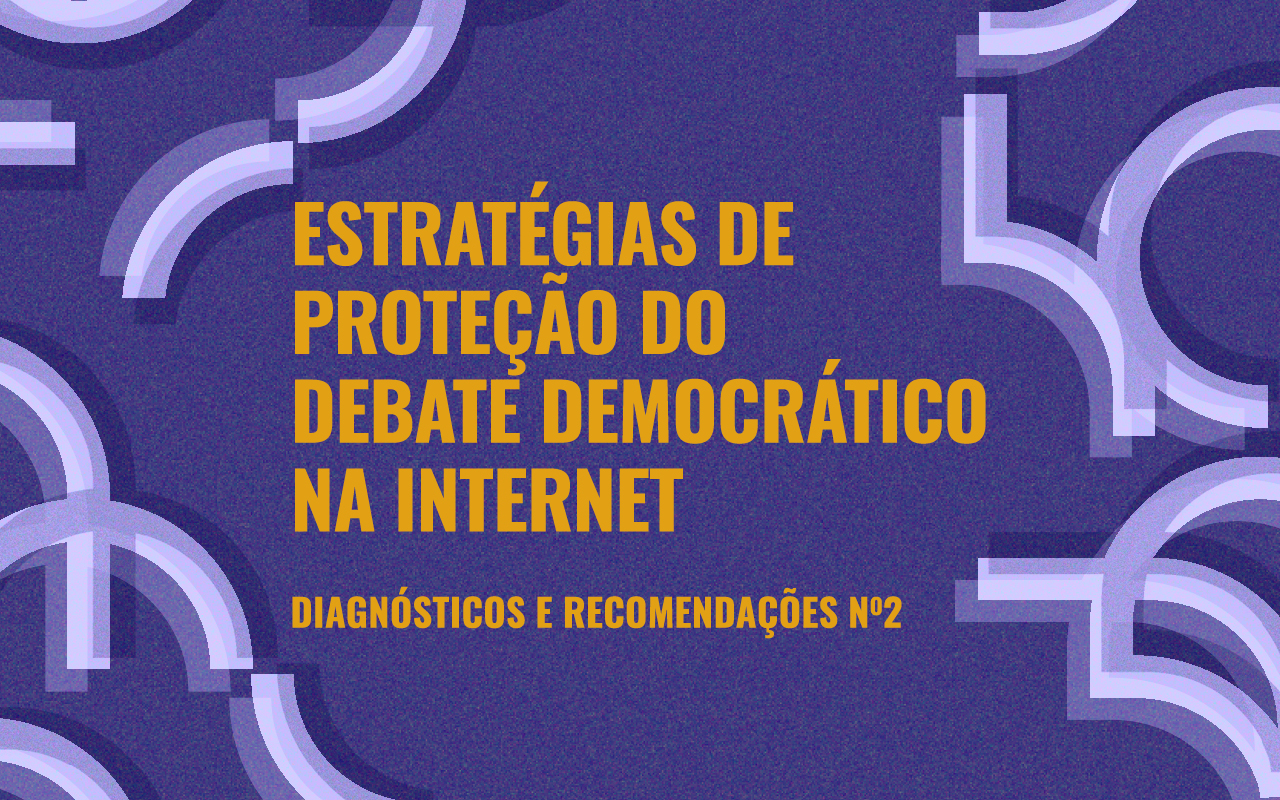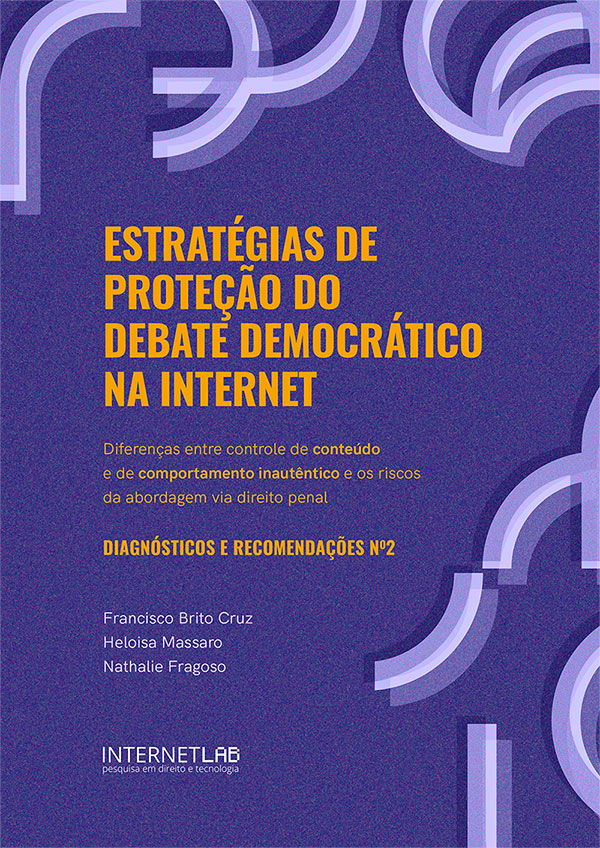
InternetLab launches recommendations to contribute to the debate on Fake News bill
The processing of legislation for tackling disinformation intensified in 2020, which signaled a need for further discussions on the appropriate legal strategies to deal with this phenomenon in the Brazilian situation. InternetLab has contributed to this debate in recent months, as seen in the articles “Laws for disinformation require more than good intentions” and “The Brazilian Congress’ approach to disinformation and regulation of the platform puts freedom of expression at risk”, and in the first episode of Antivirus, about misinformation and information on the network about COVID-19.

The main premise of InternetLab is to contribute to this debate based on the collection, analysis and systematization of evidence, advocating an approach that is both functional and committed to guaranteeing fundamental rights and democratic values. We prepared, then, a propositional intervention document with strategies for protecting the public and democratic debate online, authored by Francisco Brito Cruz, the director of InternetLab, Heloisa Massaro, the research coordinator in the area of Information and Politics, and Nathalie Fragoso, the research coordinator in the area of Privacy and Surveillance. This is the second document we have produced with this proposal, the first being about disinformation in election campaigns on the internet.
These regulatory proposals are both important and high risk. What is at stake is the delimitation of an adequate regulatory approach for online communication flows that take place in environments mediated by internet platforms, seeking to compose a basis for a quality democratic debate while minimizing the chance of incurring collateral censorship.
Part of a continuous effort that comprises a series of different contributions to the legislative debate on the topic, this document proposes a regulatory approach that focuses on tackling abusive or inauthentic behavior and not establishing mechanisms for filtering content by social networks .

Main points
- Choosing an agnostic¹ approachto combat abusive or inauthentic behavior helps regulation gain legitimacy, as the risk of censorship or arbitrary content filtering is reduced;
- The fight against abusive or inauthentic behavior is already practiced by internet companies, and regulation can encourage and facilitate this to continue as long as it remains attentive to the guarantee of fundamental rights and determines mechanisms for the transparency of such measures;
- It is necessary to differentiate degrees of intensity and organization on the part of the actors who engage in abusive or inauthentic activities onthe internet in order to delimit a legal response proportional to these incidents;
- The way in which the “follow the money” alternative has been presented is inadequate. It points to the existence of a market whose regulation is strategic, but through the use of appropriate tools that do not lead to the criminalization of the citizen, and combined with measures that address the problem as systemic;
- Different legal strategies must be mobilized to face abusive or inauthentic behavior, which can combine the creation of new normative arrangements and new interpretations of existing laws and regulations. Among such strategies, criminal prosecution should be reserved only as a last measure, applicable cautiously and residually and only used in cases of the greatest severity, which was not observed in proposals under consideration in the legislative debate.
¹ We chose the term “agnostic” to describe a regulatory stance that avoids demanding a judgment on the content that circulates on the network.